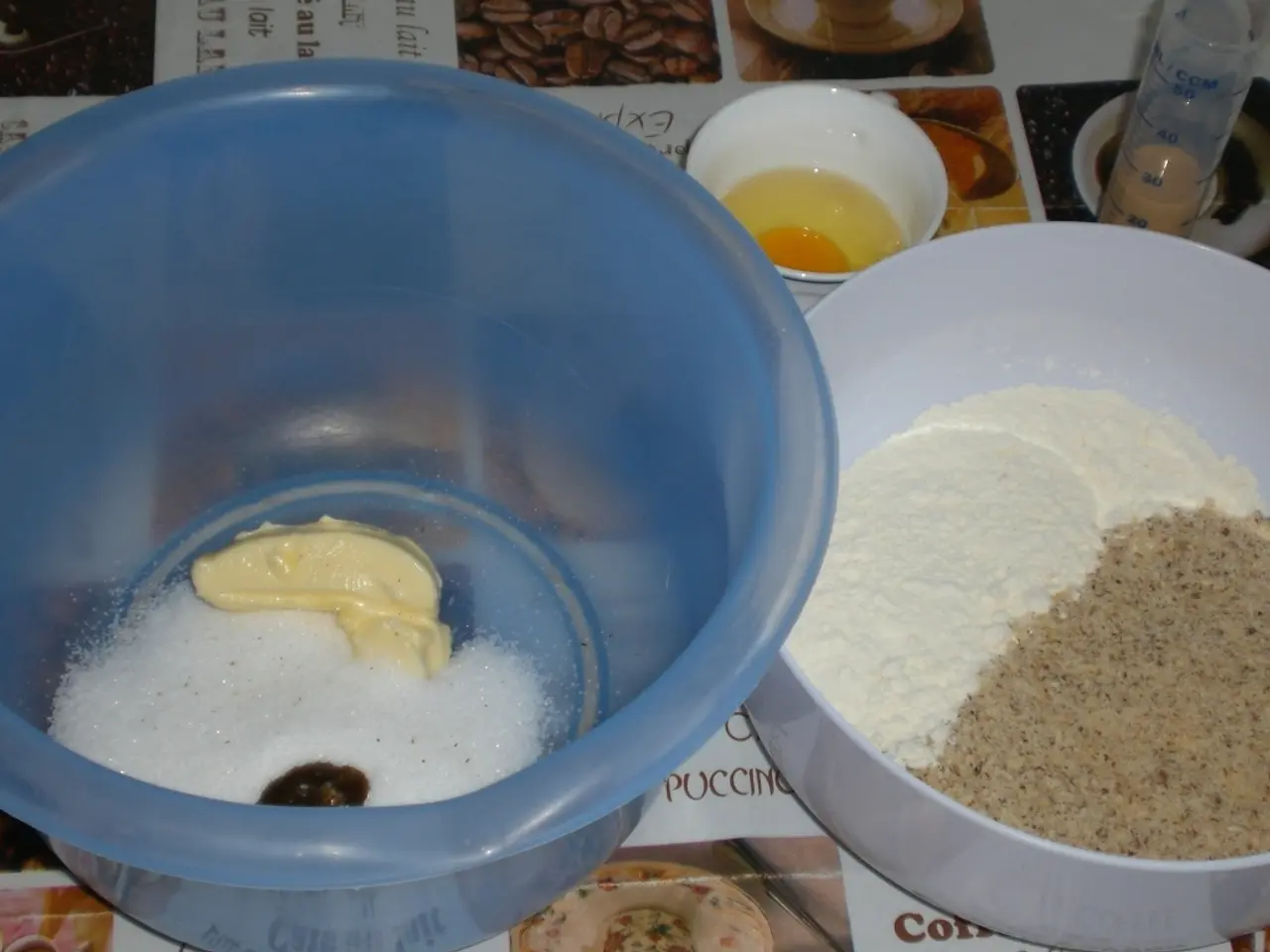Connection between Scalp Psoriasis and Hair Loss: An Examination
In a recent development, a report suggests that individuals suffering from psoriasis may experience temporary hair loss on parts of their head unaffected by plaques as a result of telogen effluvium, a form of generalized temporary hair loss that typically occurs after a stressful or traumatic event. However, it's important to note that scalp psoriasis itself does not directly cause this hair loss.
Effective treatments for scalp psoriasis and the temporary hair loss associated with it focus on reducing inflammation, clearing psoriasis plaques, and supporting hair regrowth once inflammation is controlled.
### Treatments for Scalp Psoriasis
Topical corticosteroids like clobetasol are highly effective in managing psoriasis buildup on the scalp. Available in prescription shampoos, lotions, or solutions, these treatments can be used daily for a limited period or less frequently for maintenance therapy.
Medicated shampoos containing coal tar (such as Polytar) can help slow rapid skin cell growth and reduce scaling. Vitamin D analogues (e.g., calcipotriol) and keratolytics like salicylic acid help normalize skin cell turnover and remove scales.
Topical phosphodiesterase-4 (PDE4) inhibitors such as roflumilast cream 0.3% are a newer, non-steroidal option with demonstrated efficacy and tolerability, showing rapid improvement in recalcitrant scalp psoriasis.
Other treatments include anthralin, retinoids, and systemic therapies (methotrexate, cyclosporine, biologics) for more severe cases. However, topical treatments are the foundation for scalp involvement.
### Managing Temporary Hair Loss Linked to Scalp Psoriasis
Hair loss in psoriasis is often due to inflammation and scratching but is typically temporary once inflammation is controlled. To prevent hair loss, a person with scalp psoriasis should try to avoid scratching or rubbing their scalp.
Gentle, medicated shampoos free of harsh sulfates and parabens can help reduce scalp irritation and support hair health. Treating scalp psoriasis effectively with the above therapies usually allows hair to regrow.
If hair loss persists or appears severe, dermatologists may consider treatments such as corticosteroid injections or creams to reduce immune attack on hair follicles, especially if an autoimmune hair loss condition like alopecia areata coexists. Supportive measures include managing stress, ensuring balanced nutrition with adequate iron, zinc, and vitamin D, and possibly using minoxidil to stimulate hair regrowth.
### Practical Tips
- Apply medicated shampoos or topical treatments thoroughly, sometimes using a shower cap to enhance absorption. - Avoid irritating products like coconut oil if they worsen scalp sensitivity or hair shedding. - Consult a dermatologist for persistent or severe scalp psoriasis and hair loss for tailored systemic or newer topical therapies like roflumilast.
In summary, topical corticosteroids, vitamin D analogues, coal tar shampoos, and newer agents like roflumilast cream are effective for scalp psoriasis, while controlling inflammation often reverses associated temporary hair loss. Gentle hair care and addressing any nutritional or stress factors support regrowth.
Over-the-counter treatments for scalp psoriasis may contain salicylic acid or tar, which can soften existing plaques, remove scales from the skin, slow the growth of new skin cells, and soothe itching. Medicated shampoos and topical ointments may help reduce itching. Medicated and coal tar shampoos are available over the counter, but a person must ask a doctor which one they should use.
Topical, oral, and injectable steroids can help reduce inflammation and the severity of psoriasis plaques. Plaque psoriasis is the most common form of psoriasis and affects the scalp, causing discolored patches, flaking and scales, a dry scalp that may crack and bleed, itching, burning, soreness, or pain, and temporary hair loss. Psoriasis is an autoimmune condition that causes skin cells to grow too quickly, resulting in scaling, inflamed skin. Itching the scalp or forcibly removing skin plaques can result in skin damage and hair loss.
Methotrexate and apremilast are disease-modifying antirheumatic drugs that affect the way the immune system works. UVB light therapy involves exposing the skin to an artificial light source for set periods of time on a regular basis to slow the growth of skin cells affected by psoriasis. Psoriasis speeds up the process of skin regeneration, causing skin to build up in patches or plaques on the surface.
- Seekers of effective treatments for scalp psoriasis may find success with topical corticosteroids like clobetasol, medicated shampoos containing coal tar, vitamin D analogues, or even newer non-steroidal options like roflumilast cream.
- Treaters of scalp psoriasis must aim to reduce inflammation, clear psoriasis plaques, and support hair regrowth once inflammation is controlled.
- Hair loss in psoriasis is often a result of inflammation or scratching, but it is usually temporary once inflammation is controlled.
- To prevent hair loss, seekers should attempt to avoid scratching or rubbing their scalp and switch to gentle, medicated shampoos free of harsh chemicals that can reduce scalp irritation and support hair health.
- Psoriasis is an autoimmune condition that causes skin cells to grow too quickly, resulting in scaling, inflamed skin, and hair loss if the scalp is affected.
- Individuals suffering from psoriasis may experience temporary hair loss on parts of their head unaffected by plaques due to telogen effluvium, a form of generalized temporary hair loss.
- Dermatology care for dealing with scalp psoriasis and associated hair loss might include corticosteroid injections, creams, or medications like minoxidil to stimulate hair regrowth, especially if an autoimmune hair loss condition like alopecia areata coexists.
- Managing mental health, ensuring balanced nutrition with adequate iron, zinc, and vitamin D, and following health-and-wellness practices can support overall recovery and hair regrowth.
- If hair loss persists or appears severe, seekers should consider consulting a dermatologist for tailored systemic or topical therapies or treatments for chronic diseases related to their medical-conditions.
- Haircare products like salicylic acid or tar can help individuals with psoriasis symptoms, as they can soften existing plaques, remove scales, slow the growth of new skin cells, and soothe itching.
- A person with psoriasis should be aware that while over-the-counter treatments can provide relief for symptoms, it is crucial to consult a dermatologist for proper guidance on using these products effectively.




